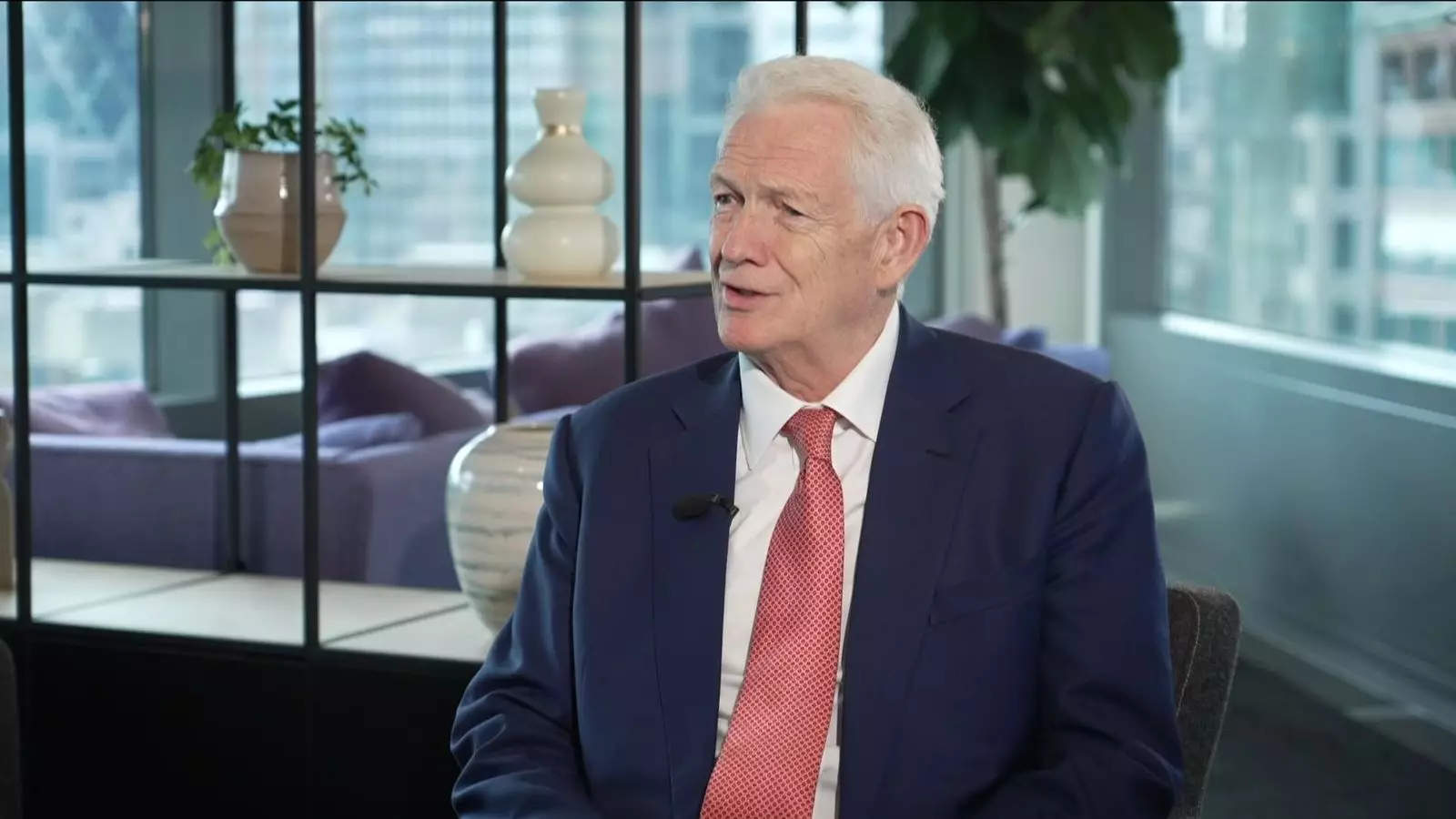Rick Haythornthwaite, the Chairman of NatWest, recently extended a figurative olive branch to British taxpayers, expressing deep appreciation for their role in rescuing the bank during the tumultuous financial crisis of 2008. As the bank returns to private ownership after 17 long years, one must wonder whether this gratefulness is a sincere acknowledgment of the public’s sacrifices or merely a PR maneuver aimed at softening the blow of recent fiscal failures. The implication is clear: while the bank’s structure may have improved since then, has the culture truly evolved to protect taxpayers from another potential crisis?
It is a remarkable balance—on one side, the bank acknowledges its indebtedness to the public, claiming that the bailouts protected millions of savers and homeowners. Yet, the same institutions that were rescued are now pushing to loosen regulations that, while cumbersome, were designed to ensure a safer banking environment. This raises an unsettling question: can we afford to trust a banking system that doesn’t fully grasp the gravity of its responsibility?
Reflective Yet Relentless
Amidst his soft-spoken gratitude, Haythornthwaite simultaneously hinted at a desire to reevaluate the very regulations that sought to prevent a repeat of the past. He suggests that some measures established in the wake of the crisis—like ring-fencing and bonus caps—may be excessive, arguably prioritizing growth over the prudence that the crisis taught us. This notion of regulatory overreach deserves scrutiny. In a world where financial institutions have historically demonstrated a penchant for risk-taking, how can we assist banks in becoming profitable without sacrificing the safety nets that protect the broader economy?
While Haythornthwaite claims that the banking sector needs to grow, it is vital to probe whether growth should supersede the well-being of the people who sustained the banks through their darkest hours. By openly advocating against stringent regulations, does NatWest risk creating an environment conducive to recklessness? After all, the policies prompted by the 2008 crisis were established not only to stabilize the sector but to safeguard the average citizen from further disenfranchisement.
The Echo of Public Anger
The public sentiment following the bailouts was marked not only by outrage but by a stark realization: financial institutions were dancing with destruction while millions of hardworking citizens were left to clean up the mess. Haythornthwaite’s comments seem to skim over the painful legacy of those years. We witnessed regulatory measures back then being called for by an angry populace, fed up with watching the irresponsible behavior of bankers go unchecked. It feels dismissive when a bank official now describes calls for reform as “overreaching,” especially considering the many who lost their homes, savings, and dignity due to banking excesses.
Furthermore, the suggestion that the financial sector should enjoy more flexibility comes across as tone-deaf when the consequences of failure resonate still within many households. Forcing the narrative towards growth and profitability in a market that plays with people’s lives is dangerous, especially if the hard-won lessons of the 2008 crisis become nothing more than nostalgic recollections rather than guiding principles.
A Warning to the Powers That Be
As a center-wing liberal, I cannot help but feel a mix of skepticism and concern listening to bankers like Haythornthwaite. While it is entirely possible that our regulations could be reviewed for efficiency, removing crucial safeguards feels far less like a prudent strategy and much more like an invitation to history to repeat itself. The Chancellor’s seeming receptiveness to these arguments underscores a troubling willingness in politics to forget past mistakes in the pursuit of short-term economic gains.
It’s a classic political dilemma: do we sacrifice the foundations of our safety nets for the allure of growth? If we take Haythornthwaite’s reassurances at face value, we have to challenge ourselves. Are we indeed prepared to gamble with the hard-earned taxpayer money that once propped up a faltering financial system? Would a few more pounds in bonuses for bankers balance out the collective distrust that stirs within the public? The complexities of this debate run far deeper than mere numbers and necessitate a critical examination of the ethical responsibilities faced by those in power.


Leave a Reply